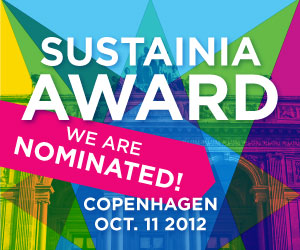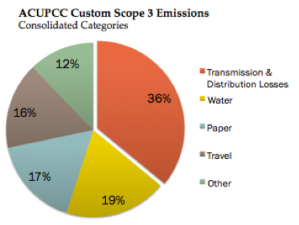This past July, the US Department of Energy launched its Clean Energy in Our Community video series, which “features small communities throughout the country that are striving to become more sustainable, are investing in the green economy, and are bringing the benefits of clean energy to local residents and workers.”
All three institutions featured in the series so far (Luther College, University of Minnesota-Morris, and Allegheny College) are signatories of the American College & University Presidents’ Climate Commitment. Two (Luther and Allegheny) are recipients of 2012 Second Nature Climate Leadership Awards.
You can watch the inspiring videos below or by following the links above.
Nominations for the 2013 Second Nature Climate Leadership Awards, which recognize innovation and excellence in climate leadership at signatory institutions of the ACUPCC, are now being accepted.
Luther College:
Read more




